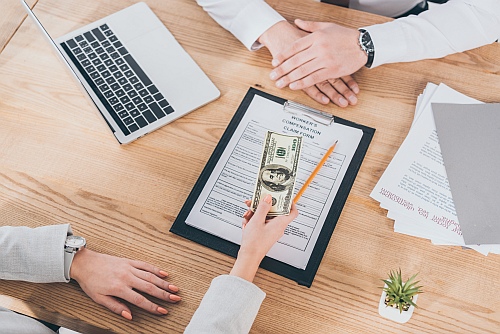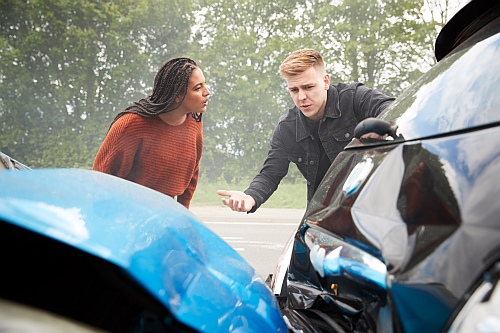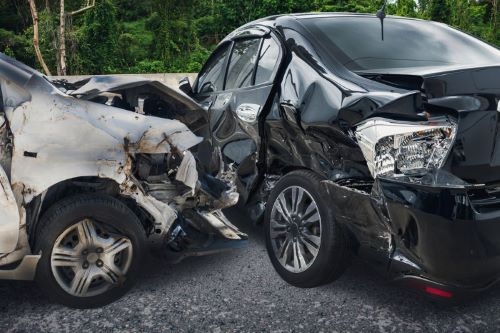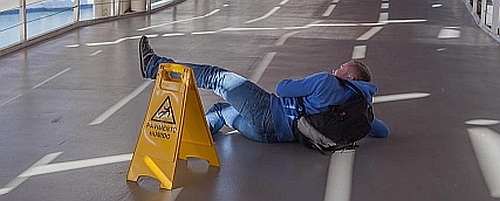- Car Accidents
It is a common assumption that you will automatically be able to recover all damages if your vehicle is rear-ended in an accident. In Florida, there is a presumption that the legal liability for an accident rests solely on the driver who rear-ended the other. However, the at-fault driver can argue against this assumption if they can provide evidence to show that the other driver was also partially at-fault.
If you were hurt in this type of accident, you’ll want a skilled Miami rear end accident lawyer to handle your case. Here at Miami Lawyers 360, our team is experienced at handling auto accident cases and will fight to get you the compensation you deserve. Get in touch with our car accident attorneys in Miami to schedule your free consultation.
Table of Contents
Who Is At Fault for Rear-End Accident in Florida?
For example, if the other driver stopped suddenly and unexpectedly, changed lanes without warning, or had a mechanical failure, then the rear driver can present these facts to a jury to rebut the presumption of fault and liability for damages.
In Florida, there is a pure comparative negligence approach that ensures that anyone within a lawsuit can claim damages if they are not 100% at fault for the accident.
Thus, if Kate and Bill are in an accident where Bill changes lanes suddenly and unexpectedly before stopping and Kate rear-ends him because she is following too closely, the following lawsuit may occur:
- IF – The jury finds that Bill was negligent in his driving and is 40% at fault for the accident…
- AND – Kate is also identified as negligent for rear-ending Bill because of following too closely and is 60% at fault for the accident…
- AND – A jury finds that Bill has suffered $5,000 in damages while being 40% negligent…
- AND – Kate also suffered $5,000 in damages while being 60% negligent…
- THEN – The comparative negligence approach indicates that
- Bill will recover damages reduced by 40% ($3,000)
- Kate will recover damages reduced by 60% ($2,000).
- The judge uses these amounts to offset against each other. ($3,000 – $2,000 = $1,000)
- Thus, Bill’s damages are greater than Kate’s by $1,000, so this is what Kate must pay.
In a situation where only Kate was negligent, Bill’s damages would not be reduced by his percentage of fault, so Kate would have to pay the full $5,000 to Bill.
In the past, the presumption of negligence was automatically placed on the rear driver in any rear-end motor vehicle collision case. However, in 2012, the case of Cevallos v. Rideout, et al. changed this. The Florida Supreme Court set a precedent for the pure comparative negligence approach in which the rear driver can pursue damages if he or she can provide sufficient evidence to convince a jury that he or she is not 100% at fault for the accident.
Is the Rear Driver Always at Fault for Accident in Florida?
Cevallos v. Rideout, et al. was a case that involved three drivers in a rear-end collision. The middle driver, on her cell phone, abruptly stopped to avoid colliding with the vehicle ahead of her but was unable to avoid the collision. The rear driver was also unable to avoid colliding with the middle driver. In this case, the jury was able to find that negligence on the part of the front drivers contributed to the accident so that damages should be calculated with this negligence in view.
Having said that, if one person in the accident is driving while intoxicated, then pure comparative negligence does not apply. Should a jury decide that the intoxicated driver is over 50% at fault, then he or she cannot recover any damages at all. In Florida, intoxication prevents a driver from recovering damages if he or she is over 50% at fault for an accident.
Gathering evidence is especially important in a rear-end collision in Florida where the pure comparative negligence approach can make a difference in your recovery. When you are in a car accident, your best bet is to hire a qualified attorney as soon as possible to ensure that the evidence is collected.
Contact a Miami Rear-End Accident Lawyer
It is our belief that being fully informed about accidents and laws in Florida is the best way to avoid accidents and recover from accidents that do occur. We are here to help you with qualified personal injury attorneys, negotiators, litigators, trial lawyers, paralegals, and additional staff who understand the laws and dynamics of Florida auto accidents. Contact us for advice on your auto accident case.








